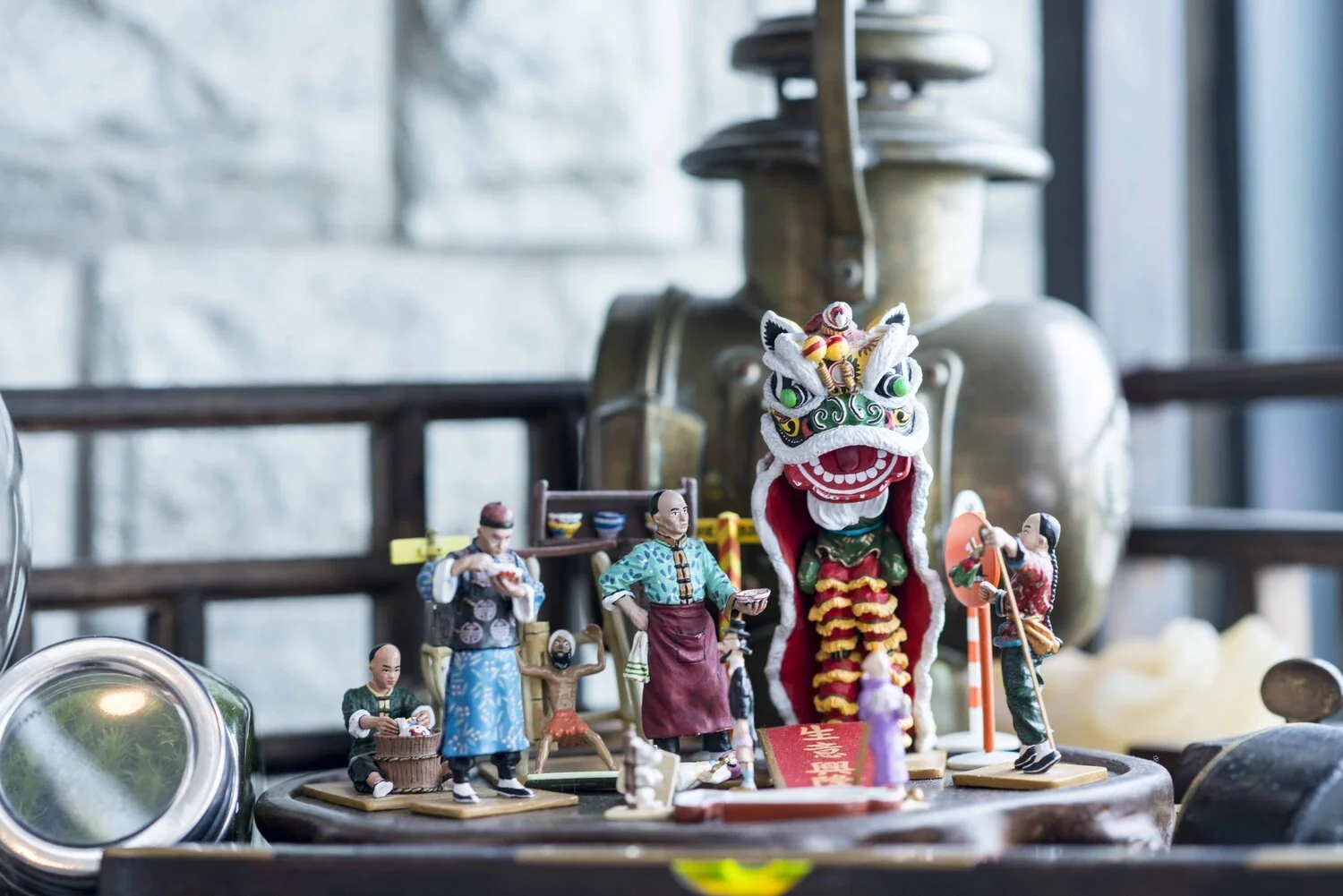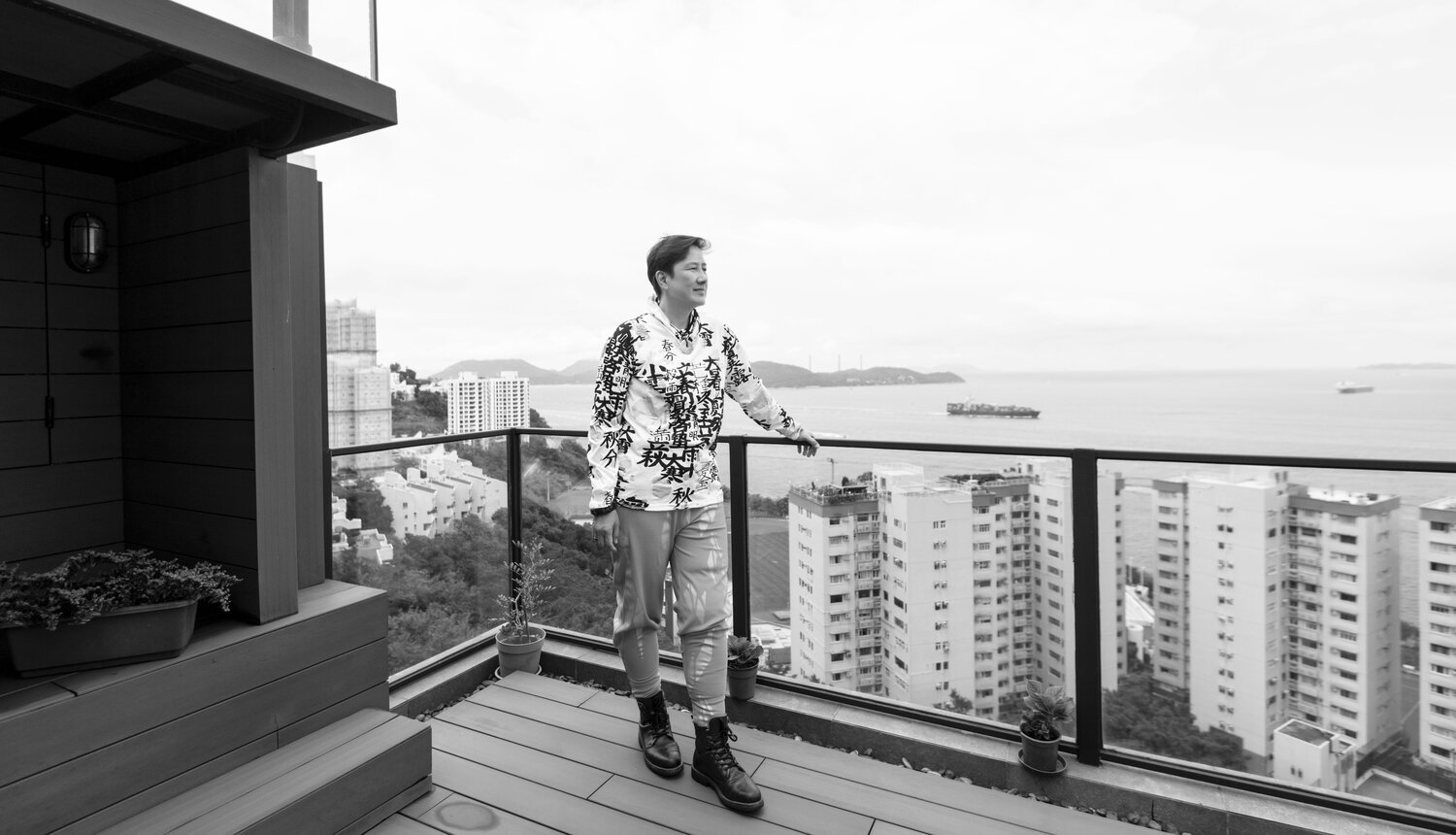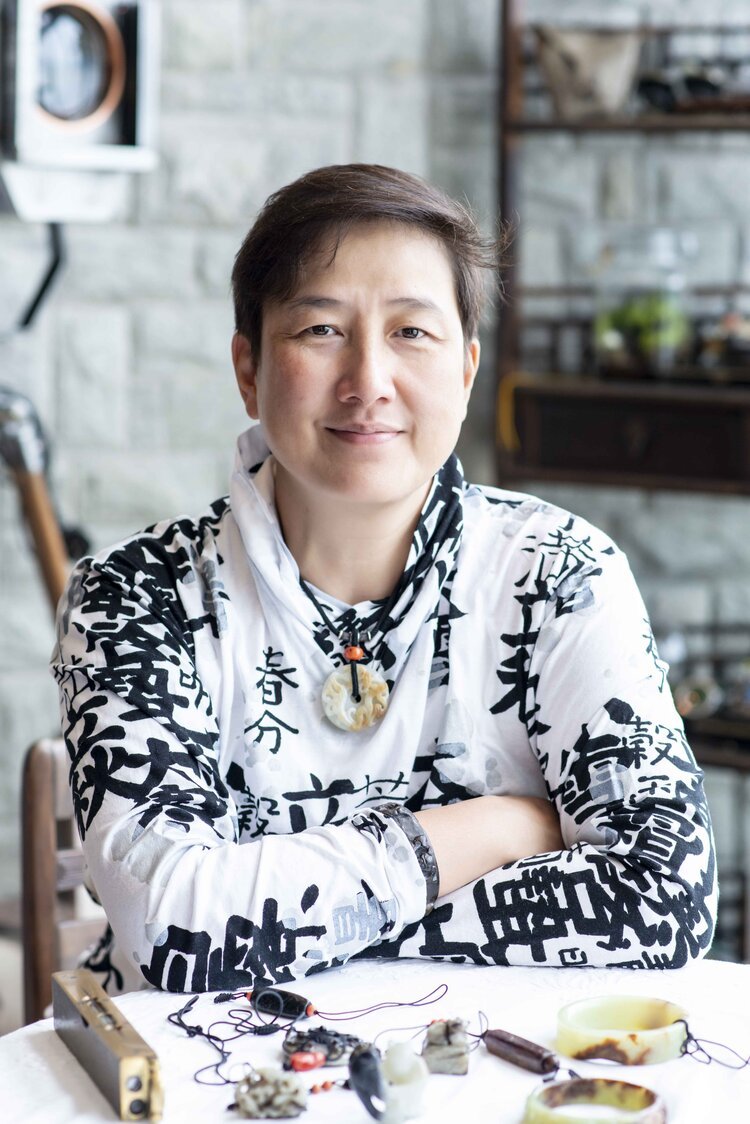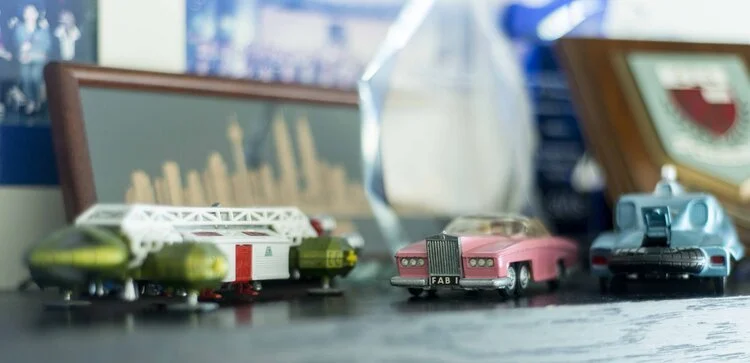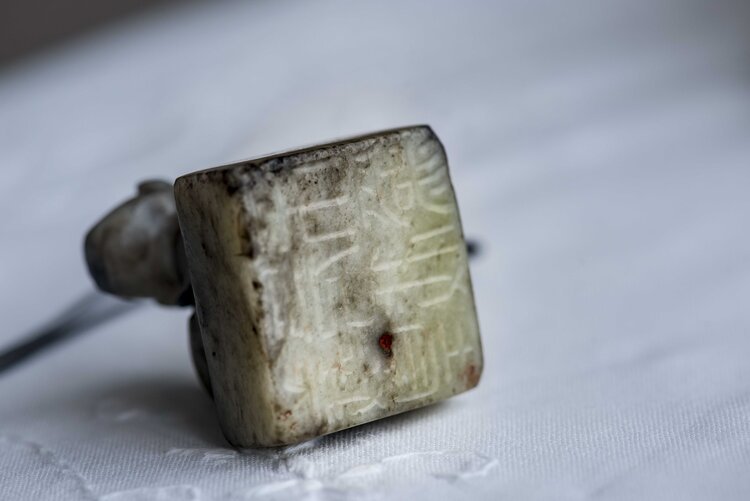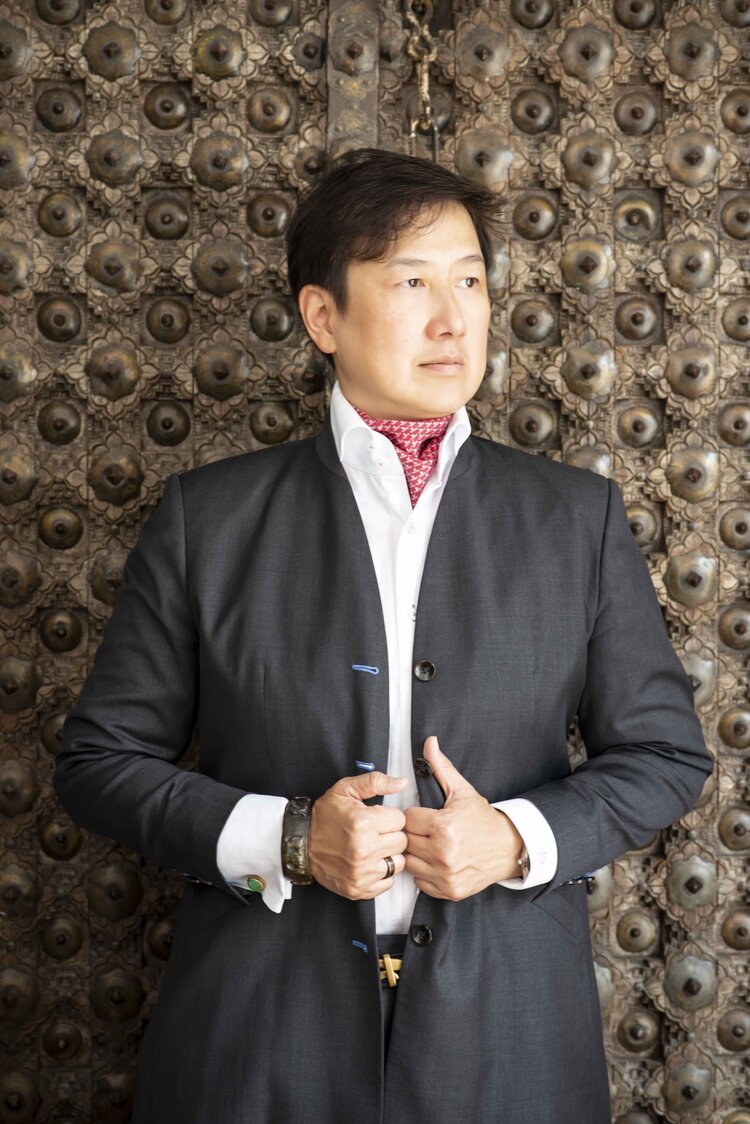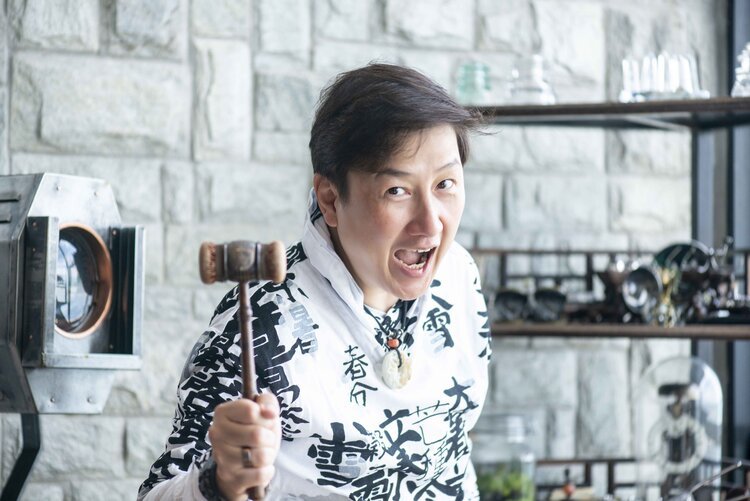What it Means to Live a Good Life – Angelina Kwan
Style and taste can be as unique as a fingerprint. I’ve often thought it’s the things we love and value which define us – art, music, the ring we favour above the others – all of these are markers for what we love – a code or map to what our essence is.
The style and taste of Angelina Kwan are nothing short of extraordinary. An avid collector, her home is a treasure trove. An open living area boasting a glass mezzanine, with a staircase to a rooftop with sweeping views of Victoria Harbour, it has a majesty which suits its owner. It’s perhaps one of the most personal homes I’ve ever been in. None of the off white / light grey minimalism here, each space, shelf and trinket dish is home to something beloved. I feel like a child in a fantasy curio store reminiscent of Enid Blyton. Everything seems to be special, the provenance of each item a mystery to be solved.
We had met briefly at events in years prior, her speaking and me photographing. Her respect for others and belief in the importance of the panels she spoke in was genuine. If I had been asked, I would have said I was intimidated, but that’s a poor word choice. Awestruck is far more appropriate.
This is our second meeting at her home. For the first we spoke – her softly, me too fast, asking question after question. Her sense of self was exuded in every gesture, her favoured uniform of boots and trousers this time giving way to a moon boot following surgery. She is meant to be in recovery from knee surgery, but had instead walked across central the day prior which has allowed the swelling to return. Her frustration is palpable, as is her determination to be as self sufficient as possible.
On this occasion though; she is ready for me. Outfits selected, I move through her space as delicately as possible, terrified of disturbing a treasured piece from its rightful place.
There are few people who can command a presence the way Angelina does. I said to her once that she was highly visible, and she joked back that “as a six foot Chinese woman she’s hard to miss”. But few have had Kwan’s profound and prestigious career. An alumnus of HG Asia, HKSFC, and Cantor Fitzgerald to name a few, she is a lawyer, Chief Executive, CPA/CA (Aus/NZ) and is now completing her Masters of Law at Harvard.
Angelina was born to Chinese parents in Los Angeles. Her Father was born in Cuba, and her mother’s side hailed from Hong Kong. Already 5’7’ and fiercely independent at the tender age of 11, Angelina was spending summers with her mother’s family, taking the Transatlantic flight on her own.
J: What’s your earliest memory of Hong Kong?
“My first impression was walking the streets of Mong Kok, and in the wet markets I remember seeing a fish cut in half, and the white part of it pulsating still. It was amazing back then. It was a culture shock, but amazing. .. just wandering, seeing things that were not in the United States, in a sterile supermarket. That was Hong Kong, and I fell in love with it.”
J: You made the move to Hong Kong in 1994 – was that post University?
“I’d done eight years in the United States, I found that as a Chinese woman, I probably wouldn't get anywhere in a large movie studio, and I wanted to try living in Asia. All my friends from university came back, and they said, ‘Come to Hong Kong!’”
“I was auditing in Asia at the time for Sony Pictures, and started interviewing for jobs, and I got a strange job called HG Asia. I had six accounting firms recruit me, and one firm that wanted to hire for an internal audit position, so I picked the internal audit position. That was the best decision I ever made. It was two plus years, and it was best job I’ve had.”
“To this day, I'm still thankful to the boss that hired me. He gave me so many opportunities - his name is David Roberts. He just opened his Rolodex and said, "You will go and meet every single one of these people," which included the CEO of the Futures Exchange, the CEO of Stock Exchange, the SFC, key people in business. And he said, ‘You will meet all of these people and you will learn’. That really helped me - giving me that opportunity.”
J: I'm speculating, but was he ahead of his time to be so supportive of a woman in the industry?
“Yes. I had to set up an internal audit department for him, so I set it up, and he gave me every single opportunity. I was 28. This was the second internal audit department I had set up. I went on to do their acquisition when ABN-AMRO bought the bank. I was the go-between with ABN-AMRO and produced all the documents for them. I did a number of really high-profile cases of malfeasance at the time, and found the answers, and gave him a very detailed audit report of things, and we recovered over nine million dollars in one case.”
J: Nine million...
“US dollars.”
J: Woah.
“Yeah, it was amazing.”
I imagine Angelina poring over documents and records, and I can’t help but think of her doing the same at an art fair, a market or a gallery. The need to find, the need to know. To recover and keep.
J: Can you recall your first collection growing up?
“You came from Australia. Do you remember Dinky Cars?”
J: Yes!
“It was a Lady Penelope car, a James Bond car, and a couple other really, really cool cars. And I never really collected anything until I found those 12 cars. And I still have them to this day.
J: Your career trajectory has very much been around regulation and audit. I look around your house and I see so much creativity and it's very personal. How do you interface the very analytical side with your obviously very creative side?
“I love art. I didn't know I loved art until I came to Hong Kong. I didn't know about culture… other than yoghurt.”
Angelina’s jokes are dry as a desert, softly delivered with an almost titter if she finds something particularly delightful. It’s both disarming and flattering.
“I didn't know about jades. I didn't know about Chinese art. I didn't know about Japanese scrolls. My mother collected jadeite, but she never explained to me what made her feel so much for a piece.”
“I started exploring around Hong Kong, and I chanced upon this guy every Thursday, this whole group of people would herd around him. His name is Joe, and he would teach me about jade, and he would teach me about the aesthetics, and why, and the history behind why have these beads, what's the purpose of this bracelet, what's the rebus behind an elephant - which means peace, why did people wear bracelets back in the Shang Dynasty?”
“All these things he slowly taught me as I went, and I sat there trying to understand China's history. That's how I started learning about thing. But none of this stuff did I ever think I would ever collect. I just like odd things, they're not exceptionally expensive.”
She has shown me her mother’s hand mirrors, exquisite pieces decorated with antique metals and stones. Japanese and pop art adorn the walls, and of course the boxes upon boxes of magnificent jade.
“I just got a sense of what I liked, and that developed in Hong Hong”.
J: You mentioned you are one of the very few women who collect jade. Why do you think that is?
“Historically, jades were very expensive. Only men could afford them. Women had baubles - jadeite and gold jewellery. Whereas men would have beads, have seals.”
She holds up an inexplicably small and intricate piece.
“This is a seal, for example. They would use this as a part of signing off on their art”:
J: Like a chop?
“Yeah, exactly. This may have been used by an official, and he would have used it to sign off on things, probably his own art. He would've probably carried it at his waist, and he would've chopped whatever his art that he liked in his collection, so would be personalised his stuff. (Jade) was a very male hobby during Tang, Song, all the different dynasties. I guess even to this day now, it's a very male hobby. I don't know why because these are so cute! How could you not fall in love with these cute things and just play with them?! I wish more women would get into it.
She holds the pieces in her hands, delicately, fingertips touching the carvings and gently turning the piece, like a catholic might worry a rosary in contemplation.
J: You’ve been involved with The Women's Foundation for some years. Can you tell me about your involvement with them and what your hopes are going forward?
“I was always a speaker on regulatory issues or teaching about securities law, teaching about anything having to do with regulation. I was asked by a good friend, Jennifer Van Dale, to do a speech”.
“I said to Jennifer, ‘What do I know about writing a speech about women?’ She said, "Well, you can start by being a woman’. I was invited to speak at the Women's Event for AmCham in 2011, and I didn't know a single thing. So I got up on stage. I spoke about the importance of women and how different life would be if Lehman Brothers were Lehman Brothers and Sisters - how different life would be if there were more women in decision-making positions.”
“Su-Mei Thompson met me there and I got involved with The Women's Foundation, not knowing a single thing about it. I found my voice there to speak about women. When I looked back at my career, I realised I was one of the few women in every department that I was in. In most organisations I've worked for, I've been the first woman there, from Cantor Fitzgerald to now.”
J: You speak so passionately about empowering women and bringing people together, and you are obviously...you are such a unique figure in Hong Kong. From your outlook to career trajectory, to fashion and style choices, none are stereotypically that of a Chinese woman. You were saying all your suits are tailor-made.
“The only reason why I have to get tailored suits is there is nothing off the rack that will fit a 6-foot tall Chinese woman.”
J: They’re very sophisticated with these beautiful bright splashed of colour in the lining as well.
“That’s the fun part. And the scarves”.
J: Yes – the scarves! Where did you buy the first one?
I used to work for a British firm, and there I fell in love with cuff links, which is why I now have a huge set of cuff links.
J: Once again, a little tiny, shiny thing.
“Yes. That's another collection that morphed into a passion - cuff links and all things British. I got my first scarf, for putting it in my jacket. But then I always felt bare on my neck. We used to wear bows in the '80s - that was a big thing. Women in their power suits with bows. So, I started tying scarves instead. They fit perfectly and give a dash of colour. I adopted that as a sort of uniform at the regulator, at the exchange, all the different jobs. It allowed me to be professional, but have a dash of colour in an otherwise grey suit, which just sort of morphed into that way.”
“In an erstwhile boring...” She catches herself. “No, not boring job. Never boring! But - in a stately and solid job, it's fun to have fun.”
J: I think there’s a lot of fun parts to Angelina.
“I think that's one of the things I really enjoy. I enjoy working with people and having fun with people, but yet being serious.”
J: I think you marry the two well. When I started this project, we were coming off a really rough year in Hong Kong. But now the landscape has changed so much. What’s your takeaway - a positive that you have seen come out of this dark cloud?
“I’ve seen sparks of human decency, in terms of people doing little things, like they may keep the door open for you instead of slamming it. People are actually asking, "Hey, are you OK?" and random acts of kindness. I think that's what we really need to heal Hong Kong. Women helping women, men helping men, men helping women, women helping men. With all of the unrest, I think ultimately, it sounds so simple but if everybody just helped everybody and stop fighting, and just help the other to help Hong Kong, I think we'd be in a lot better place. You can see that now where people are trying to do that.
J: I'm certainly seeing little shards of light. I think there's a lot more empathy in our every day lives. We spoke before about what it means to be good, and what it means to lead a good life. How does that look to you?
Angelina’s front door - one of two doors found in Bali. “An Indian temple door, 300 years old. And they fit the house perfectly. It was kismet.”
“I think that's what we need, we need more empathy and less hate - there's already too much hate. If women can help other women in positions, and if men can help women, and if women can help men, I think Hong Kong will go a lot longer and a lot farther.”
“And you know what? Senior doesn't mean that you do anything to help. It means that you roll up your sleeves and do what you need to do. My colleagues at TWF needed somebody to clean the computers, so I sat there cleaning, scrubbing laptops because they need to be disinfected. That's what you do to just get the job done.”
We say our goodbyes as I pack up, and she is back to work, speaking authoritatively in Mandarin on the phone. It has been a whirlwind experience. In our first meeting we had spoken of what it meant to live a Good Life – be that as a friend, in a career, as a leader or in personal fulfilment. I think for Angelina it is all these things, a culmination to not just be good – but to do good.
“I have a stance, I guess, that I collect jade, which is a very male thing. And I go into very male-oriented jobs, and I would like to see more women succeed. That is the whole raison d'etre of empowering women - getting them into positions where they help other women and help mankind.”
You can find more about Angelina here:
https://www.linkedin.com/in/angelina-a-kwan-cpa-ca-aus-nz-26a57a8/
https://www.instagram.com/twfhk/
https://twfhk.org/our-board-0



